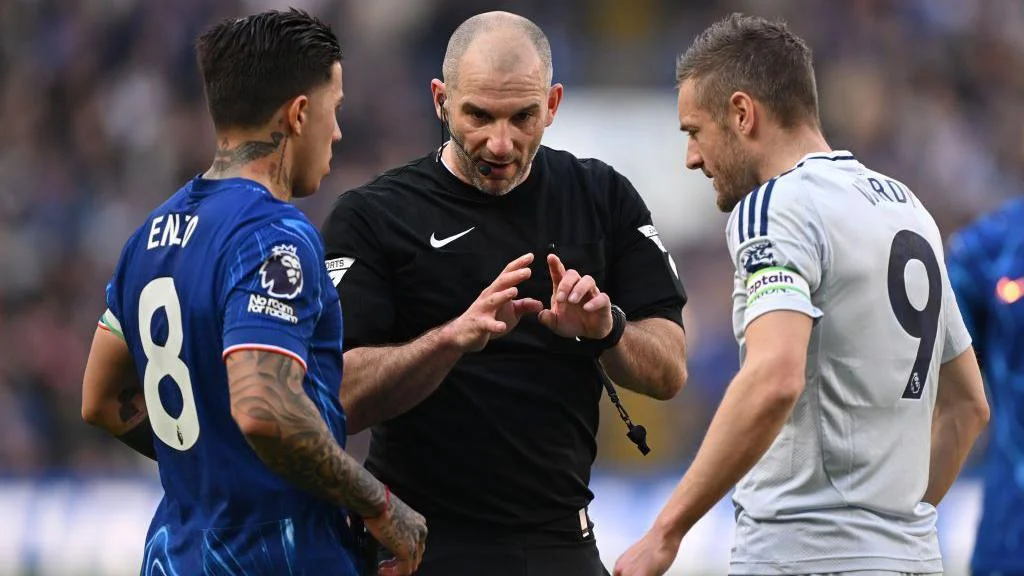
What Will the New Referee Rules Mean for Premier League Captains?
The Premier League is primed for a seismic shift in how players interact with referees, following the proposal of a new rule that stipulates only team captains will be allowed to communicate with officials during controversial moments. This change aims to curb the rising tide of player abuse towards referees and foster a more respectful dialogue on the pitch.
As Liverpool's captain, Virgil van Dijk sits poised to be at the forefront of this new protocol should it pass during the Premier League's annual general meeting next month. The intention behind this rule is straightforward: to reduce the number of players surrounding referees and to streamline interactions between match officials and the team leaders.

Currently, the chaotic scenes where multiple players approach referees protesting decisions are common, often overshadowing the game itself. The newly proposed regulation could very well lessen these confrontations by designating a single spokesperson per team—usually the captain—during pivotal moments. The hope is that this will not only improve the officials' decision-making environment but also enhance team dynamics regarding respect towards match officials.
This initiative, which mirrors existing regulations in UEFA competitions, has been touted as a means of enhancing communication. Referees will be encouraged to explain rather than justify their decisions, fostering a more constructive atmosphere. As noted by UEFA's managing director of refereeing, Roberto Rosetti, the chaotic nature of having up to 22 players surrounding a referee complicates communication to the point of feasibility. “It can lead to a breakdown in communication,” he remarked, reflecting a sentiment shared by many within the football community.
Support for the rule has emerged from various quarters, notably from Premier League referee Michael Oliver, who stated, "Having that link and that dialogue with a designated person can only help provide that.” This sentiment underscores a drastic need for reform, particularly as reports of abuse towards referees have surged, necessitating immediate action.
The proposed regulations would empower referees to show yellow cards to players who approach them without the captain's permission, thereby reinforcing the authority of captains in managing their teammates' behaviour. This brings captains not just a leadership role but also a responsibility to maintain respect on the field.
However, it's also important to note that players will still have opportunities for dialogue with referees; it's just that the discussions concerning significant decisions will rest solely with the captain or a designated outfield player when the captain is a goalkeeper. This preserves the essence of communication but adds a level of structure aimed at preventing dissent from numerous players.
As clubs prepare to endorse the rule, anticipation of its impact, particularly on players like Van Dijk and the nature of leadership on the pitch, is palpable. The forthcoming changes herald a new chapter in Premier League officiating, setting a precedent that could influence grassroots football as well.
In conclusion, as the new rules beckon, one must wonder: will this change genuinely transform the dynamics between players and referees, or will the only captains rule become another talking point in football debates? Only time will tell, but fans and players alike are encouraged to share their thoughts on this pivotal move that is set to redefine matchday narrative.